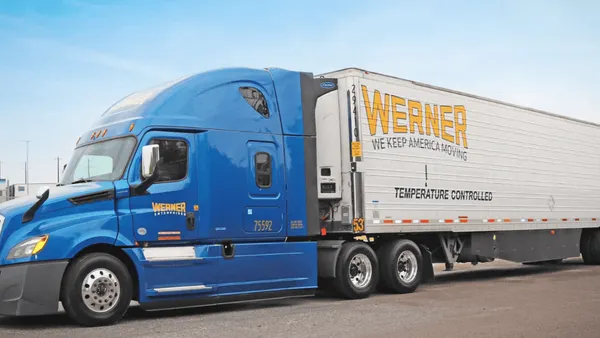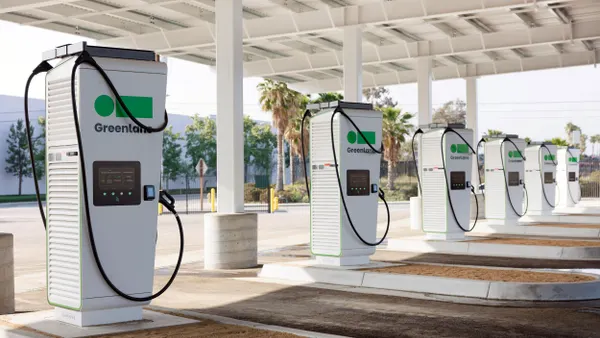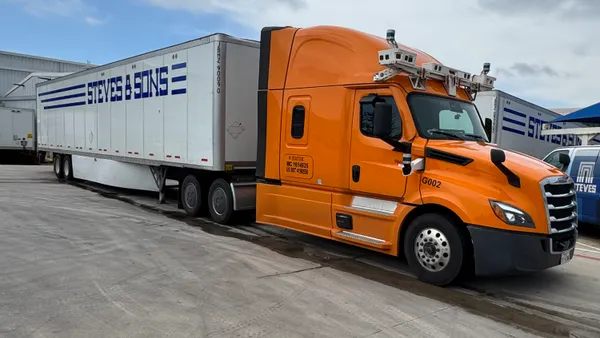Dive Brief:
- Daimler Truck subsidiary Torc Robotics will pilot its self-driving technology with C.R. England in the Southwest, according to a news release Tuesday.
- The pilot will service select customers with temperature-controlled capacity, which Torc expects to serve as a jumping-off point into refrigerated freight.
- Initial planning will begin in mid-2023 with on-road tests soon after, the companies said.
Dive Insight:
C.R. England’s pilot partnership with Torc, and another with Kodiak Robotics, is a signal that the technology passed an initial review by the carrier.
C.R. England's lengthy history with buying Daimler equipment also helped, and C.R. England VP of Equipment and Fuel Ron Hall told Transport Dive that the carrier hopes to continue beyond the pilot as the technology evolves.
Hall said the carrier began its review of autonomous technology by conversing with multiple companies, looking at issues ranging from sourcing the equipment to what technology software would be used.
"We're basically forming an opinion on who we think is going to win and then approaching them directly for pilots," he said.
Other carriers have taken a similar approach. Werner Enterprises executives noted they have been evaluating multiple self-driving offerings as the technology grows. And Schneider National has also been engaging with multiple players, including Aurora Innovation and Torc.
In the long term, C.R. England sees the potential for improved fleet economy and utilization through autonomous trucking since they won’t be bound by hour of service rules.
Hall likened the fleet economy improvement to when C.R. England switched to automated transmission on its tractors: While fuel efficiency wasn't better than what the best driver could achieve, fuel economy for its fleet average did improve.
C.R. England does not see the technology negatively impacting its workforce either. The reefer is focused on making a high quality of life for drivers, both with pay as well as lifestyle by allowing routes to be closer to homes.
"We are very adamant that we don't feel like autonomy is going to replace drivers," Hall said. "We think autonomy is going to allow us to continue to grow in areas that have been hard to recruit and retain drivers."












